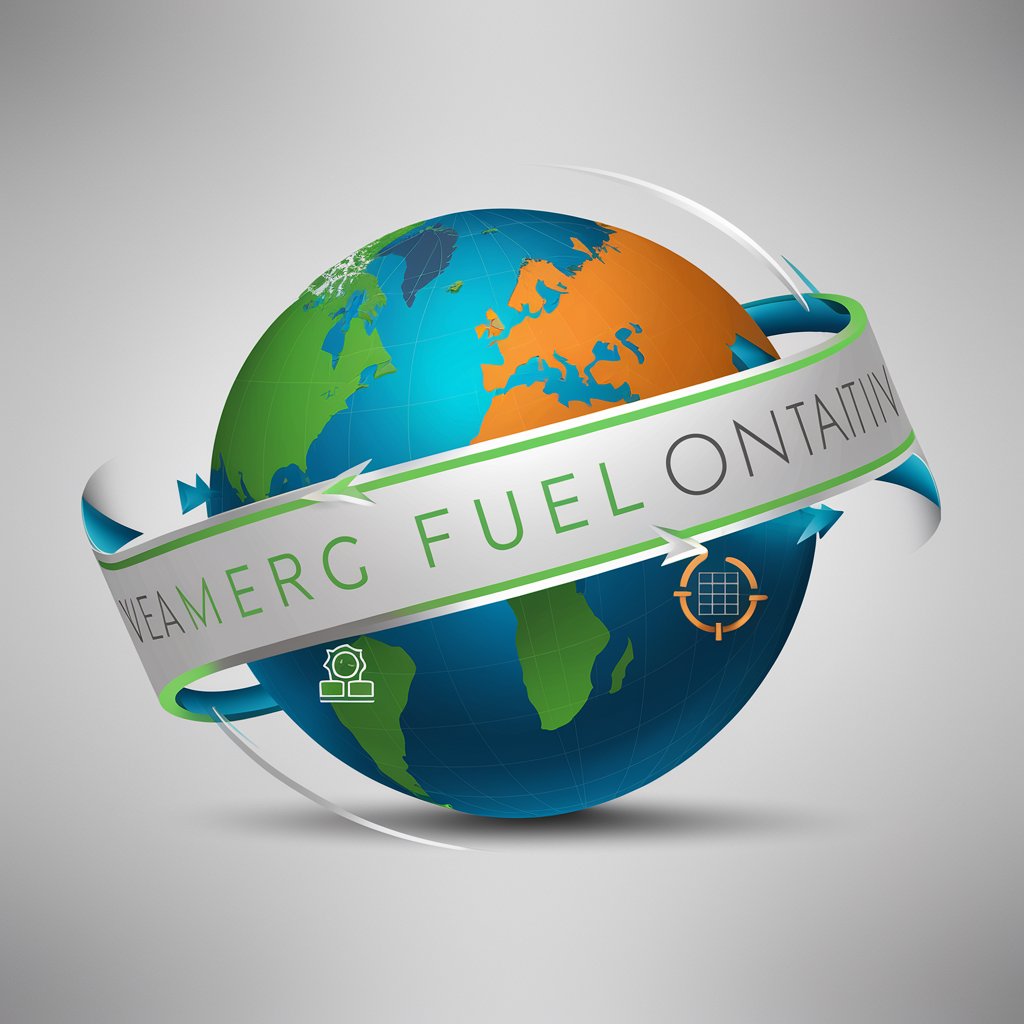Fuels - Comprehensive Fuel Insights

Welcome! I'm here to provide detailed information about all types of fuels and energy sources.
Empowering Energy Decisions with AI
Explain the differences between renewable and non-renewable fuels...
Describe the process of energy production from biomass...
What are the environmental impacts of using fossil fuels...
How do fuel cells work and what are their applications...
Get Embed Code
Overview of Fuels
Fuels is designed as a specialized GPT to provide in-depth knowledge on various types of fuels, their applications, and energy sources. It offers detailed, accurate, and up-to-date information tailored towards energy-related topics, aiming to educate and inform users about fuel types, properties, uses across different industries, and their role in energy production and consumption. By focusing on delivering factual and practical information, Fuels helps users navigate the complex landscape of energy resources without delving into speculative or opinion-based content. Examples of its utility include clarifying the differences between biofuel and fossil fuel applications in the automotive industry, explaining the significance of octane ratings in gasoline, or detailing the process of nuclear fission in energy generation. Powered by ChatGPT-4o。

Core Functions of Fuels
Educational Resource
Example
Providing a detailed comparison of renewable vs. non-renewable energy sources.
Scenario
A high school teacher preparing a lesson on sustainable energy finds comprehensive explanations and comparisons to enhance their curriculum.
Technical Assistance
Example
Explaining the chemical properties of ethanol and its implications for use as a fuel additive.
Scenario
An automotive engineer researching alternative fuel additives uses the information to evaluate ethanol's suitability for enhancing engine performance.
Industry Analysis
Example
Offering insights into the latest trends in the solar energy market.
Scenario
An investor considering the solar energy sector receives up-to-date market analysis and trend predictions, aiding in making informed decisions.
Policy Guidance
Example
Detailing the impact of carbon taxes on various fuel types.
Scenario
Policy makers use the provided data to understand how different fuel taxes can influence consumer behavior and emissions.
Target User Groups for Fuels
Educators and Students
This group benefits from Fuels by gaining access to structured, reliable information on energy topics, enhancing their learning and teaching experiences.
Industry Professionals
Engineers, scientists, and business professionals in the energy sector use Fuels for in-depth technical data and industry insights, facilitating better decision-making and innovation.
Policy Makers and Environmental Advocates
They rely on Fuels for accurate, comprehensive analyses of energy policies, fuel usage impacts, and sustainable practices, supporting informed policy development and advocacy efforts.
Investors
Investors interested in the energy market benefit from using Fuels by obtaining detailed market analyses and trends, helping them identify promising investment opportunities.

How to Use Fuels
Start Your Journey
Begin by exploring yeschat.ai for a complimentary trial, accessible without any need for login or subscription to ChatGPT Plus.
Identify Your Needs
Determine the specific fuel-related information you're seeking, whether it's about types, applications, energy sources, or environmental impacts.
Utilize Search Functionality
Use the search feature to find topics or questions related to fuels. You can look for information on renewable energy sources, fossil fuels, biofuels, and more.
Engage with Content
Read through the provided information to gain insights into fuel types, their uses across different industries, and their roles in energy production.
Apply Knowledge
Utilize the gathered information in practical scenarios, such as academic research, industry applications, or personal knowledge enhancement.
Try other advanced and practical GPTs
SendMails Support Assistant
Streamlining Email Solutions with AI

Phone Screen
Illuminating the Future of Smartphone Displays

文案模仿专家
Tailor-Made Texts with AI Precision

Quantum Branches: Realities Unbound
Explore Parallel Universes with AI

Homemaker
Streamlining homemaking with AI

Telecom ISP Solutions
Empowering ISPs with AI-Driven Solutions

A Mente Mestra
Empowering innovation through AI collaboration

10倍生意成長
Scaling businesses with AI efficiency

GB/T 7714-2015 格式化专家
AI-Powered Reference Formatting, Made Simple

Critical Geopolitical Writer
Decoding Geopolitics with AI Power

Eversun
Empowering Creativity with AI

CanarianMarket
Bringing Canary Islands Closer

Frequently Asked Questions about Fuels
What are the main types of fuels covered by this tool?
This tool covers a broad range of fuels including fossil fuels (coal, oil, natural gas), biofuels (biomass, bioethanol, biodiesel), and alternative energies (solar, wind, hydroelectric power).
How can Fuels help me in academic research?
Fuels provides detailed, accurate, and up-to-date knowledge on various energy sources, aiding in the research of renewable energies, fossil fuel impacts, and energy policies.
Can Fuels suggest the best fuel type for industrial use?
While Fuels offers comprehensive data on fuel properties and applications, it encourages users to consider factors like efficiency, cost, and environmental impact for informed decision-making.
Does Fuels offer insights into the environmental impacts of different energy sources?
Yes, it provides information on the carbon footprint, sustainability, and ecological considerations of various fuels, helping users understand environmental impacts.
How up-to-date is the information provided by Fuels?
Fuels strives to offer the most current data, with updates on new energy technologies, market trends, and scientific research in the field of energy.
